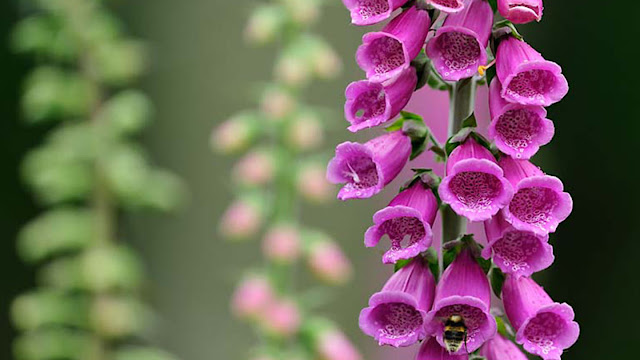Deadly Herbs Used and Their Therapeutic Use to Cure Complex Diseases
The first medicines invented by human being centuries ago
are nothing but various types of herbs in different form. While medical science
has improved inside out by now, there are herbs that are still same important
to cure several diseases, and the most important thing is, several of them are
extremely dangerous if taken without medical guidance, says an executive of weeddelivery near me in Washington DC.
So, let’s today know about some of such deadly herbs that
have been used since long for several life threatening medical conditions.
Foxglove (Digitalis purpurea)
Deadly Properties: Foxglove contains compounds called cardiac glycosides, which can cause severe cardiac toxicity if ingested in excessive amounts, says a cannabis delivery near me DC. Symptoms include nausea, vomiting, diarrhea, confusion, and heart irregularities that can lead to death.
Medicinal Use: Despite its dangers, foxglove has a
long history of use in treating heart conditions, particularly congestive heart
failure. The purified cardiac glycosides from foxglove are used in prescription
medications like digoxin to improve heart function.
Marijuana (Cannabis sativa)
Deadly Properties: Marijuana, also known as weed contains delta-9 tetrahydrocannabinol (THC) and cannabidiol (CBD) which has very strong impact on our nervous system and can any person “high” within seconds.
Medicinal Use: Though, it is known for its negative properties,
it is widely used in medical science for treating trauma, stress, anxiety,
depression, phobia, insomnia and several other medical conditions. Even it is
often used to keep chronic pains under control.
Belladonna (Atropa belladonna)
Deadly Properties: Belladonna is rich in tropane alkaloids like atropine and scopolamine, which can lead to hallucinations, delirium, paralysis, and death when consumed in large quantities, explained a senior farmer of Washington dc weed delivery.
Medicinal Use: In controlled doses, belladonna has
been used for its antispasmodic properties and to dilate pupils for ophthalmic
exams. It has historical use in treating certain gastrointestinal and
respiratory conditions.
Hemlock (Conium maculatum)
Deadly Properties: Hemlock contains coniine, a neurotoxin that paralyzes muscles, said an executive of one of the best weed delivery services in DC. and the respiratory system. Ingesting even a small amount of hemlock can be fatal.
Medicinal Use: Historically, hemlock was used
topically for pain relief, but its internal use has fallen out of favor due to
its extreme toxicity. It is essential to differentiate between hemlock and
other similar-looking herbs.
Wormwood (Artemisia absinthium)
Deadly Properties: Wormwood contains thujone, which, when consumed excessively, can cause seizures, hallucinations, and organ damage.
Medicinal Use: Despite its toxic components, wormwood
has been used in traditional medicine to treat various conditions, including
digestive issues, says weed delivery Washington DC. It is also a key
ingredient in the spirit absinthe, although regulations limit thujone content.
Mandrake (Mandragora officinarum)
Deadly Properties: Mandrake contains alkaloids like atropine and scopolamine, making it potentially lethal if ingested in significant amounts. Symptoms include hallucinations, delirium, and paralysis.
Medicinal Use: Mandrake has a rich history in
folklore and traditional medicine, primarily for its sedative and
pain-relieving properties, explained Marijuana
Delivery Washington DC. However, its use is fraught with danger
due to its toxicity.
It's crucial to emphasize that these deadly herbs should
never be used without proper knowledge, training, and medical supervision. The
line between medicinal use and poisoning can be thin, and the therapeutic
window for these herbs is often narrow.
In modern medicine, active compounds from these deadly herbs
are carefully extracted and purified to create medications that can be used
safely and effectively under medical supervision. These examples serve as a
reminder of the delicate balance between the potential benefits and harms of
natural remedies and the importance of informed decision-making in healthcare.
Always consult with a qualified healthcare professional before using any herbal
remedies, especially those with a history of toxicity.




Comments
Post a Comment